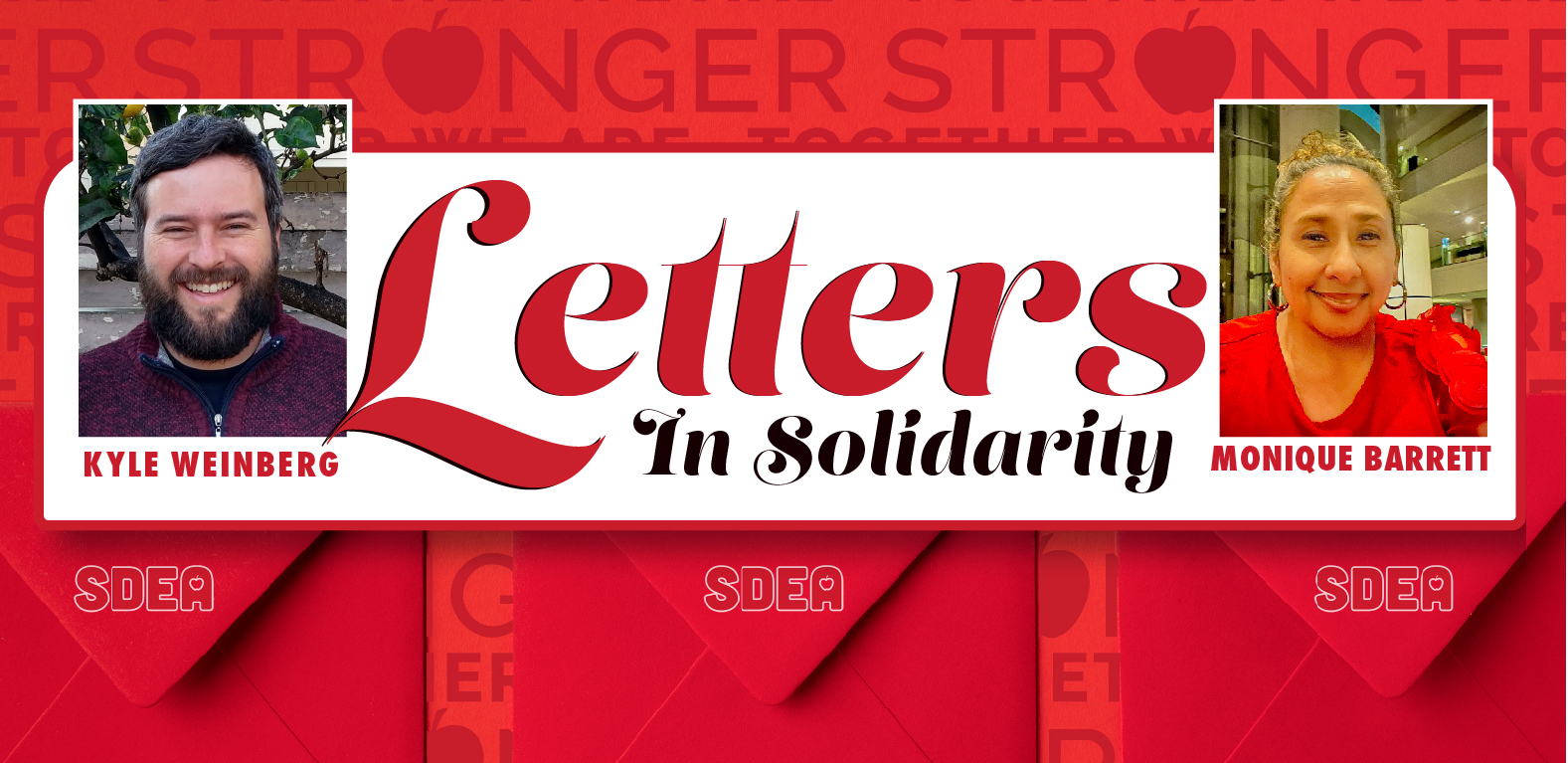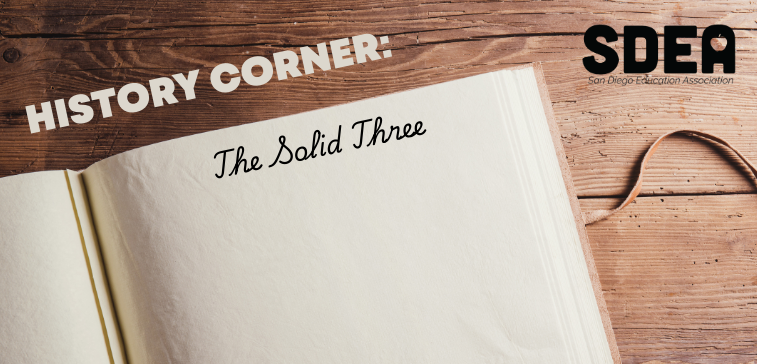FAQ: Social Media
Widely-utilized social media applications and sites like Facebook, Twitter, Instagram, Snap Chat, and YouTube, as well as personal blogs, can enrich our lives, facilitate communication, and have very useful classroom applications. Social media provides educators a way to connect with their students on a level that is comfortable and relevant to them, and communicate with parents rapidly and with ease. In this technology-saturated era that we are a part of, it is imperative to be aware that something that seems quite mundane and innocuous, such as a Facebook posting, could have repercussions that affect an educator’s employment status.
Don’t public school employees have First Amendment rights to free speech?
As a general rule, public employees do have a right to “constitutionally-protected free speech activities,” and public school employers cannot punish nor discipline employees for engaging in such activities. These activities include speaking out about matters of a public concern as a private citizen off-campus (like attending demonstrations in support of a particular cause, being an active member of a political party or organization, writing letters to the editor about public policy and politics, etc.). Importantly, public school employers do have the right to restrict the free speech rights of their employees if they are speaking on matters of merely personal concern on-campus. Employers may have the right to restrict the speech of their employees’ off-campus if they are speaking as an educator and employee of a school district, on any matter, be it public or private. Increasingly, the courts have noted that technology has practically eliminated the barriers between on-campus and off-campus speech, especially since students and others can now access the internet not only via school computers but also via personal cell phones and tablets.
What kind of off-campus public school employee speech can be restricted by a public school employer?
A number of lower and Supreme Court decisions, beginning with the 1968 decision in Pickering v. Board of Education, have spoken to what kind of off-campus speech by school employees can be limited by public school employers. More recently, the court decisions have been focused on off-campus speech contained in Myspace, Facebook, blogs, and other forms of online communication by educators. Courts have increasingly seen the Internet as part of the public arena, and there is no question that a large number of people participate in a variety of free speech activities online. But not all speech in the public arena is protected speech if one is a public school employee, especially an educator. Conduct that can undermine an educator’s effectiveness in the classroom, along with speech that can disrupt the workplace, impair close working relationships, or otherwise interfere with the functioning of a school, is not constitutionally protected free speech off-campus. This is especially true when done by the educator in their role as an educator, but may even apply if done as a private citizen.
The courts have also found that it is reasonable for school officials to expect an educator with supervisory authority over students to maintain a professional and respectful association with those students. Educators should not communicate with students, whether online, via texts, or through other electronic means, as if they were their peers, since it could disrupt the learning atmosphere of the school. In addition, some courts have found that public blogs or posts online that contain highly personal and vituperative (as opposed to general) comments about the employer, peers, students, and/or parents can fatally undermine the educator’s ability to enter into trusting relationships with others, a role that is fundamental for an educator. This conduct has been used as the basis for discipline in some cases.
What kind of online speech or conduct can be considered “immoral and unprofessional?”
Beyond speech and communications with students and others in their role as educators, public school employees are held to a high standard of moral and professional conduct in their private lives. Certain conduct and speech is deemed “immoral and/or unprofessional,” under CA Education Code (Section 44932), and could lead to a certificated employee being disciplined or fired. There is no one set standard and each situation is looked at on a case by case basis. Context is often the crux of the decisions made by various courts in regards to online speech and conduct that could be “immoral and/or unprofessional” and grounds for discipline. The reality is that teachers are held to a high standard of conduct in the eyes of the law, both in their public and private lives, and what might be considered “immoral and unprofessional” for an educator may be considered normal behavior for others. This type of speech or conduct is a moving target and can be hard to define. The posting of material showing an educator engaged in a variety of activities deemed acceptable by societal standards, like pictures of them enjoying an adult beverage, or at a party, bar, or dance club, have been deemed “inappropriate” and sufficient grounds for discipline.
Even further outside the norm of what has been deemed acceptable would be an educator posting pictures of themselves in revealing or risqué clothing, posting pictures of them participating in art of a graphic or adult nature, composing explicit poetry on a personal blog, or posting candid pictures of one’s students. All of these examples are based on actual cases and resulted in discipline for the educator in question.
Doesn’t the union contract give us “just cause” protection against arbitrary discipline, including termination? What about the fact that I have permanent status?
Yes, both our union contract (in Article 33, Letters of Reprimand and Suspensions), and the CA Education Code (Section 44932) establish “just cause” for permanent employees. Probationary employees generally do not have similar protections, and are in a more tenuous position since the district does not have to make them permanent until they have completed both years of probationary service. They can be let go prior to achieving permanency without cause. What just cause means is that there has to be evidence that an employee’s conduct or speech demonstrates unfitness to teach students or work with colleagues, and then subsequent steps must be taken to ensure that the employee has due process rights afforded them prior to discipline being administered.
Just cause protections are stronger than trying to argue free speech rights under the First Amendment through the courts. What all of this means is that if the public school employer attempts to discipline an employee for their Internet postings, the employee has the ability to pursue remedies before an arbitrator, state labor board, or other state agency, arguing that their postings or conduct do not constitute just cause for their discipline. The employer in this case has to show that the employee’s postings or conduct materially and adversely affect the educator’s ability to teach or perform other functions of their job. There are several examples around the country where educators have been disciplined or fired for their online postings and conduct, and have then successfully overturned terminations, or reduced disciplinary action because the employer did not meet the tests of just cause, through grievance and arbitration or appeals procedures in their union contracts or state education codes.
How do I protect myself from potential discipline for my private online postings and conduct?
First and foremost, anything you post online will exist in perpetuity, so ensure that you utilize common sense: never put in electronic form anything that you do not want viewed by millions of people, including your colleagues, students, administrators, and parents. Most social media sites allow you to adjust privacy settings; do so and set them on the highest level possible. Be advised that the use of pseudonyms has not protected educators from discipline or discharge in past cases. If you are using social media for educational or classroom purposes, establish a separate account, especially if it is for the purpose of working or communicating with students and parents. Ensure that you still utilize high privacy settings. Monitor who you “friend” or allow access to your site, and who you give your personal contact information to. Establish a policy or procedure that you stick to and utilize regarding social media use with students or any other individuals. Be aware of the unintended audience, even on sites that you are strictly using for educational or communication purposes. The best rule of thumb is to keep it professional and strictly related to school work and education. A healthy dose of caution can go a long way in keeping you out of potential trouble in your profession and career.
What if I have more questions, or I am facing discipline for my online conduct or postings?
Contact your site Association Representative (AR). He or she can work with you to address your questions, or contact the SDEA office on your behalf to work with a Contract specialist, and if needed a Field Organizer, to address any disciplinary situation you might be facing in regards to your online activity.
News
April 21, 2025
Generation Debt: Student Loan Forgiveness Webinars
Student loans have been in the news a lot recently and many members have questions about what they should do. Attend this CTA session for information about…
April 9, 2025
Know Your Rights & Know Your Vote: 2025 Post & Bid
We need to ratify an agreement to continue phasing out Fall "Excessing"! Read the full agreement: Ongoing Implementation of 2025 – 2026 and 2026 – 2027 Pilot…
April 7, 2025
Budget Input Sessions
The SDEA Bylaws give members the opportunity to provide feedback on the SDEA Budget. There are two virtual budget input sessions scheduled to give input for…
April 2, 2025
The Standard: Switch Through April 30
SDEA members, are you already enrolled in The Standard? Your opportunity to switch to The Standard for your CTA-endorsed Disability is now available! Apply now…




